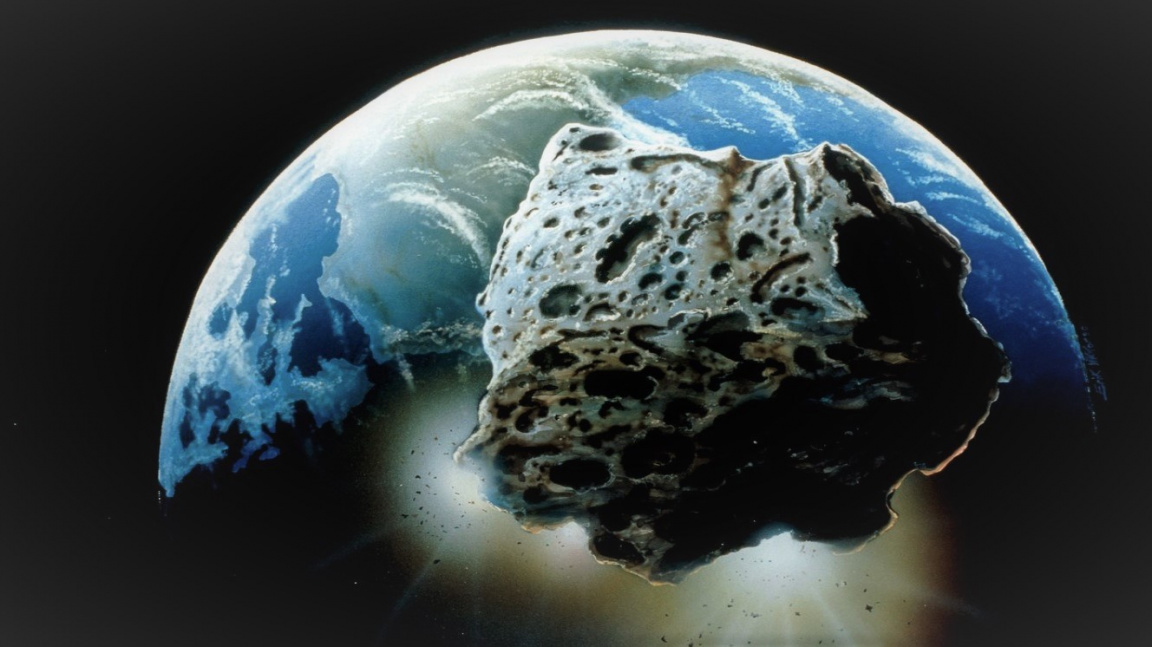Humanity is not ready for the arrival of an asteroid-killer, it relies on luck
We play with fate, we can’t avert the arrival of a killer asteroid that can wipe out entire cities, or even civilization.
Apocalyptic collisions of asteroids with Earth are addressed by filmmakers in Hollywood, for example in the catastrophic films Armageddon or Crushing Impact.
But how would we deal with such situations in reality? Experts point out that we are not ready to respond to them yet.
Little time to save
The US space agency NASA organized an expert exercise in April, during which it simulated a threat from space. The hypothetical scenario described a situation where an asteroid as large as a football field was discovered 92 million kilometers from Earth. He was heading for our planet, the Šumava region, and astronomers calculated that he would land there in six months.
The experts who took part in the weekly exercise came to the alarming conclusion that no existing technology can avert the asteroid’s impact and the impending catastrophe.
Paul Chodas, manager of the Center for Near Earth Object, one of NASA’s subsidiaries and involved in the simulation, told Business Insider: “It was a short warning scenario. If an asteroid like the fictional one were aimed at Earth, we would need to receive a warning years in advance, not months. “
Chodas marked the minimum time to avert a collision with an asteroid-killer to five years. Astronomer from Massachusetts Technology institute Richard Binzel, estimated this time at up to ten years. “Time is the most valuable commodity you could wish for if you face the threat of asteroids,” Binzel told the same magazine.
Let’s know the enemy
Astronomers are unable to reliably locate the dangerous cosmic rocks that fly near our planet, so the five or ten years mentioned cannot be relied on.
In 2005, the US Congress ordered NASA to search for and track near-Earth objects measuring 140 meters or more. However, the agency still cannot do this one hundred percent.
(Asteroids larger than 140 meters are considered city killers. Planetary killers are covered by asteroids two kilometers or more.)
“In the meantime, we’re counting on the luck that keeps us safe from big asteroids,” Binzel said. “But happiness is not a plan.”
Binzel pointed out: “If you want to defend the planet, you must know the enemy. You need to know as much as you can about the asteroid. You should know its size, trajectory and what it consists of. With such information, scientists can evaluate strategies, which takes time. “
NASA has three main plans in its planetary defense arsenal.
The first is to detonate an explosive device at an approaching asteroid and divide it into smaller, less dangerous pieces. The second is to focus the laser beam from space on the asteroid and evaporate the rock from it to change its trajectory. The third plan envisages a spaceship hitting an asteroid and deflecting it from its trajectory.
The space agency is currently preparing to test a third strategy. This year, it will send a half-ton probe to the asteroid Didymos, which will collide with its moon Dimorphos, which has a diameter of 160 meters. The impact should deflect its path. See you…
Are we surprised by an asteroid killer?
However, all these strategies are useless if you do not know in time where the asteroid is coming from. The fact that many of them are not detected, or recorded too late, is explained by astronomers by the fact that asteroids and comets arriving from the Sun with difficulty searching with optical telescopes are simply obscure.
NASA is therefore developing a special NEO Surveyor telescope, which has to identify bodies coming from the direction of our star reliably, and especially well in advance. If everything goes according to plan and the influx of money from the US Congress does not dry up, it will be launched in 2025.
„Technologically speaking, we have the ability to figure out what’s flying out there. And from a scientific point of view, we have a moral responsibility to obtain this information, “said astronomer Binzel. “It would be unforgivable if we were once surprised by an asteroid we could see arriving.”
– .

/data/photo/2018/03/02/2673648420.jpg?resize=150%2C150&ssl=1)
